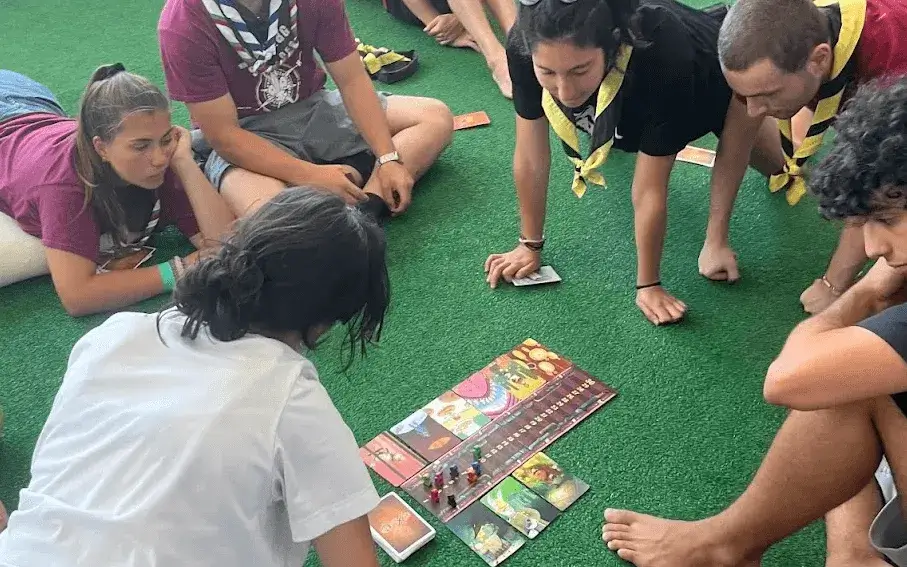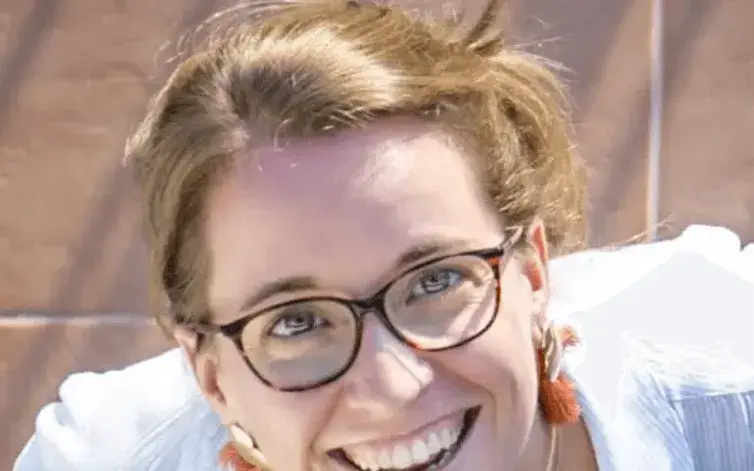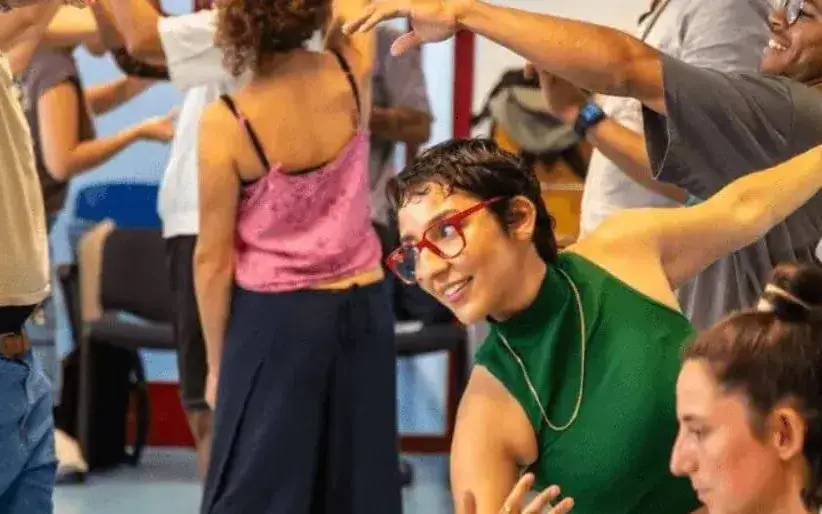
This summer, a group of young people from Torelló (a Spanish municipality from Catalonia) went on international camps in Bulgaria, where they shared activities with members of local scout groups in the cities of Varna and Ruse.
For nine days, a group of 18-year-olds from the Truc unit, along with their leaders from the Torrelló group, traveled to Bulgaria to live an international experience with local scout groups and guides.
The project , which combined getting to know the territory, discovering the culture and living with other young people , took them to the cities of Sofia, Varna and Ruse . There they participated in joint activities, gastronomic workshops and traditional games, in addition to exchanging knowledge about scouting and guiding in each country. We spoke with Enric Viver, head of the group, and Aina Ahumada, one of the young participants, about the experience, the cultural differences and the experiential learning of the experience.
Why did you choose Bulgaria as your destination?
Enric: We wanted to live a different experience, a country with a new language and culture. At the hideout, with the older groups of young people, we have always organized international camps in the summer. This year, we were looking for a destination that was a little more unknown, with a language and culture that were further away from us.
Italy, for example, we had already visited in previous stages, and that is why we wanted an environment that really made us leave our comfort zone and was more affordable.
How did you first make contact with the Bulgarian scouts?
Aina: There is a website with the contacts of scout groups in Europe . We wrote several emails and, by chance, the commissioner of scouts and guides from Bulgaria was at an international meeting with the commissioner of our organization, Minyons Escoltes i Guies de Catalunya. He called us and that's how we started to organize it.
What was your main idea before leaving?
Enric: We wanted to experience a real exchange: living with young Bulgarians, cooking, playing, learning from them and sharing who we are. We didn't just want to spend a few hours there, but to live with them and understand how they live Scouting and Guiding.
Which groups did you do exchanges with?
Aina: We did two. The first was in Varna, where we spent an afternoon with Basil, who explained to us how scouting and guiding works there. He is the general commissioner of scouts at the state level, and he was able to give us a more global vision.
The second exchange, in Ruse, was more intense and this time with young people and children from that den. We spent two days there, during which we were able to cook together and share games and activities.
What specific experiences were you able to share?
Enric : We had a gastronomic exchange, one of the most fun moments. We taught them how to make potato omelette and bread with tomato , and they taught us typical dishes like a cold soup with kefir, cucumber and spices . Spending the morning cooking together was a really nice way to break the ice.
Aina : We also shared games. We taught them how to play saltafoulards and they showed us Dixit , a board game that we already knew, but they played with slightly different rules.
What differences surprised you the most about how Scouting and Guiding live?
Enric: There are few scouts and guides there, maybe 400 or 500 in the whole country, and that makes their structure different. The groups are not as connected as here and they meet once every two weeks instead of every week. We were also surprised by their hospitality and formality: they had very set schedules and each activity was very prepared, while we improvised more on a pre-planned basis.
Aina: We were surprised that they exchanged their personal scarves at each meeting. Here it is a symbol of identity that accompanies us throughout our lives, but there they change them and collect them. Also that the stage of being a child or young person extends until the age of 26 when here at 18 you can already be responsible for a group.
Are there also differences in coexistence and day-to-day activities?
Aina : Many. For example, in the den we have very assimilated practices that were very surprising to them, such as the fact that we boys and girls sleep together. They, on the other hand, have separate rooms. They also separate the children from the leaders when it comes to eating, which caught our attention.
How does their model of Scouting and Guiding compare to yours?
Enric : Their scouting and guiding is very much based on pioneering. They have fewer monthly meetings, but more excursions and camps. In Bulgaria there are large enclosures in forest areas, prepared so that this type of stay can be done, which usually last about 4 or 5 days, coinciding with their summer days.
Did you know the historical context of scouting and guiding in the country?
Enric : Yes, and it surprised us. Scouting was banned during the dictatorship and it wasn't until 1989, with the fall of the communist regime, that the groups began to reorganize. From what they told us, they still have a hard time expanding their base and getting more children and young people to join, especially because they receive few subsidies from the State.
How did you communicate with young Bulgarians?
Aina: Mainly in English, although they taught us some words in Bulgarian and we also shared some in Catalan. We even did a music exchange: they taught us Bulgarian songs and we played them songs in Catalan, like Julieta, which they loved.
What did you take away from this experience?
Enric: The memory of having shared very authentic moments with young people who live the same passion for Scouting from a very different reality. We have realized that we are very diverse, but we share values.
Aina: We return loaded with new experiences, new words, new tastes and a great desire to continue discovering cultures through scouting.






Add new comment